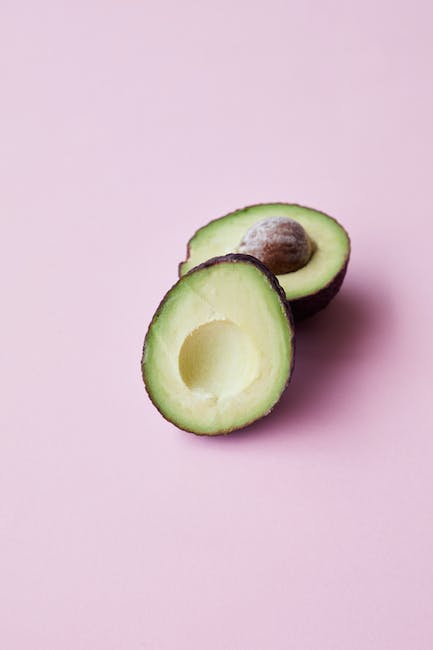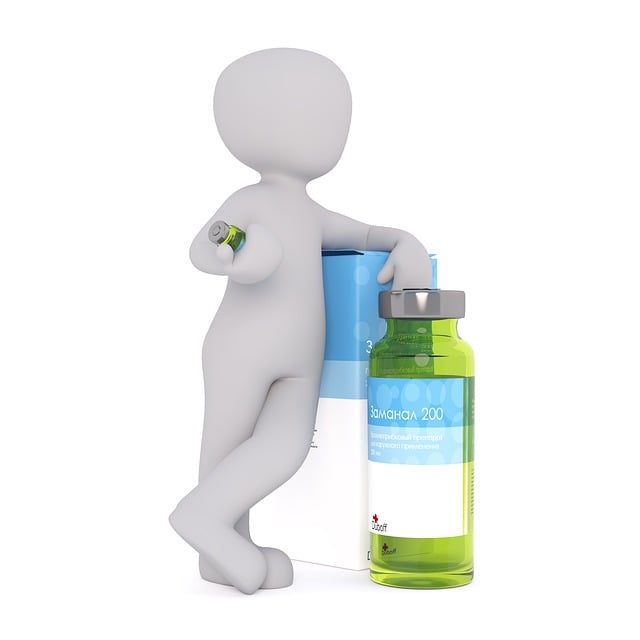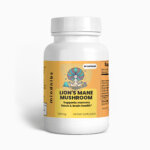
“Supplements for Vegans: Filling the Nutritional Gaps in a Plant-Based Diet”
As a vegan, you’re doing a great job of looking after your health and protecting our planet. However, cutting out animal products from your diet can pose as a challenge in terms of certain essential nutrients that your body may need. Fortunately, there are supplements that can fill that gap and help you maintain optimal health on a plant-based diet. Read on to learn about the various supplements available to vegans and how they can benefit your health and wellbeing.
1. The Benefits of a Plant-Based Diet
A plant-based diet is one that includes mainly plant foods – vegetables, fruits, whole grains, legumes, and nuts – and excludes or minimizes animal foods such as meat, dairy products and eggs. While some people choose a plant-based diet for ethical concerns such as animal welfare or the environment, there are numerous health benefits to adopting this lifestyle.
- Reduced risk of chronic diseases: A plant-based diet is linked to lower incidences of chronic diseases such as heart disease, diabetes, and certain cancers. This is because plant foods are rich in antioxidants, fiber, phytochemicals, and other nutrients that protect the body against damage from free radicals, inflammation, and oxidative stress.
- Improved weight management: A plant-based diet that is low in processed foods and high in fiber can help with weight management. Plant foods tend to be lower in calories and higher in fiber, which keeps you full for longer periods and helps regulate blood sugar levels.
- Supports gut health: Plant-based diets are rich in fiber, which is essential for a healthy gut microbiome. A healthy gut microbiome is linked to improved immunity, fewer instances of digestive problems and certain cancers, and reduced risk of developing chronic diseases such as type 2 diabetes.
Overall, there are numerous benefits to adopting a plant-based diet. Not only is it linked with reducing the risk of chronic disease, improved weight management and strong gut health, but a plant-based diet also reduces greenhouse gas emissions, animal cruelty and the use of natural resources, making it an ethical and environmentally sustainable choice.

2. Nutritional Needs for Vegans
It is a common misconception that vegans cannot meet their nutritional needs from a plant-based diet. However, with proper meal planning and supplementation, vegans can meet all their nutritional requirements without consuming animal products. The following are some essential nutrients that a vegan diet needs to include:
- Protein: Vegans can get sufficient amounts of protein from legumes, soy products, nuts, and seeds. Nutritional yeast is also a great source of protein.
- Calcium: Dark leafy greens, fortified plant-based milk, and tofu made with calcium sulfate are excellent sources of calcium.
- Iron: Vegans can get their iron intake from legumes, tofu, whole grains, nuts, and seeds. Pairing iron-rich foods with vitamin C sources enhances iron absorption.
In addition to the above nutrients, vegans need to include adequate amounts of vitamin B12, vitamin D, omega-3 fatty acids, and iodine in their diet. Vitamin B12 is essential for nerve health and is found only in animal products. Vegans can get vitamin B12 from fortified products or take a supplement. Vitamin D facilitates calcium absorption and supports bone health. The main source of vitamin D is sunlight, but it can also be found in fortified plant-based foods and supplements. Vegans can get their omega-3 fatty acids from flaxseeds, chia seeds, and walnuts, or take a supplement. Iodine is vital for thyroid function and can be obtained from sea vegetables or iodized salt.
In conclusion, a plant-based diet can meet all the nutritional needs of vegans with proper planning. Vegans need to ensure they consume an adequate amount of protein, calcium, iron, vitamin B12, vitamin D, omega-3 fatty acids, and iodine to maintain optimal health. It is recommended to consult with a registered dietitian for personalized guidance on meeting nutritional needs on a vegan diet.
3. Common Nutrient Deficiencies Among Vegans
As a vegan, it can be challenging to ensure that you get all the necessary nutrients for a healthy and balanced diet. While plant-based diets offer a wide variety of vitamins and minerals, it is crucial to be mindful of potential nutrient deficiencies. In this section, we will explore the three most and provide tips on how to avoid them.
Vitamin B12: Vitamin B12 is essential for maintaining healthy blood cells and nerve function. As it occurs naturally in animal products, vegans are at risk of developing a deficiency. Symptoms of Vitamin B12 deficiency include fatigue, muscle weakness, and tingling in the legs and arms. To avoid this, it is recommended that vegans consume fortified foods or take a Vitamin B12 supplement.
Iron: Iron is necessary for proper blood function and transporting oxygen throughout the body. Plant-based sources of iron are abundant, but they are not as easily absorbed as animal-derived iron. Vegans should incorporate sources of vitamin C, such as citrus fruits or peppers, to enhance iron absorption. Iron-rich plant-based foods include legumes, dark leafy greens, and whole grains.
Calcium: Calcium is crucial for building strong bones and teeth. Many plant-based sources of calcium, such as tofu, almonds, and leafy greens, can provide this essential mineral. To avoid calcium deficiency, it is important to eat a variety of these foods, particularly those that are fortified with calcium. Calcium supplements may also be an option for vegans who struggle to meet their daily requirements.

4. Supplements for Protein and Amino Acids
In addition to food, supplements can help provide the necessary protein and amino acids needed for muscle growth and repair. Here are some options:
Whey protein: Whey protein is a popular supplement for athletes and gym-goers. It’s a complete protein, meaning it contains all nine essential amino acids. Whey protein is quickly absorbed by the body, making it ideal for post-workout recovery.
BCAAs: Branched-chain amino acids (BCAAs) are a group of three essential amino acids: leucine, isoleucine, and valine. These amino acids are important for muscle protein synthesis and can help reduce muscle damage and fatigue. BCAA supplements come in powder or capsule form and are often taken during workouts.
Creatine: Creatine is a molecule found naturally in muscle cells. It can help increase muscle mass, strength, and endurance. Creatine supplements are available in powder or capsule form and are often taken before or after workouts. It’s important to drink plenty of water when taking creatine to avoid dehydration.
Supplements can be a helpful addition to a balanced diet and exercise routine. Remember to consult with a healthcare professional before starting any new supplement regimen.

5. Vitamins and Minerals Essential for Vegans
Veganism is a healthy lifestyle that has gained immense popularity in recent years. However, it’s important to note that vegans may struggle to meet their daily nutrient requirements without proper planning. Essential vitamins and minerals such as vitamin B12, iron, calcium, and vitamin D3 are often found in animal products, which vegans avoid. Therefore, it’s crucial to consume alternative plant-based sources and/or fortified foods to avoid deficiency.
Here are some of the key vitamins and minerals that vegans should pay attention to:
- Vitamin B12: Vegans should take a B12 supplement or consume fortified foods such as plant-based milk.
- Iron: Iron is essential for healthy blood cells and can be found in dark leafy greens, tofu, lentils, and fortified cereals. Combining sources of iron with vitamin C-rich foods can help improve absorption.
- Calcium: Good sources of calcium for vegans include fortified plant-based milk, tofu, kale, and almonds.
- Vitamin D3: Vitamin D is important for bone health and can be obtained through sunlight exposure or fortified plant-based milk and cereals.
- Zinc: Zinc is crucial for a healthy immune system and can be found in legumes, whole grains, nuts, and seeds.
It’s important to note that while some of these nutrients can be obtained through a well-planned vegan diet, it may be necessary to take supplements for optimal health. Consult with a healthcare professional to determine your specific nutrient needs and make necessary adjustments to your diet. Remember, a vegan diet can be healthy and nutritious as long as you take the necessary steps to meet your daily nutrient requirements.
6. Omega-3 Fatty Acids: Why They’re Important and Where to Find Them
Omega-3 fatty acids are crucial nutrients that our bodies need to function properly. These fatty acids are essential for maintaining healthy brain function and managing inflammation throughout the body. They’re also believed to be helpful in preventing chronic diseases such as cardiovascular disease, arthritis, and certain types of cancer.
The best way to get omega-3 fatty acids is through dietary sources. Some of the best sources include fatty fish such as salmon, tuna, and mackerel. Flaxseeds, chia seeds, and walnuts are also great sources of omega-3s. If you don’t consume enough of these foods regularly, you may want to consider taking a supplement. Fish oil supplements are a common choice for those looking to boost their omega-3 intake.
It’s important to note that not all omega-3 fatty acids are created equal. The type of omega-3s found in plant-based sources like flaxseeds and walnuts is different than the types found in fish. The omega-3s found in fatty fish are more easily absorbed by the body and are therefore more beneficial. Additionally, some sources of omega-3s may be contaminated with mercury or other pollutants, so it’s important to choose your sources wisely. By incorporating omega-3 rich foods into your diet or taking high-quality supplements, you can ensure that you’re getting the proper nutrients your body needs.
7. Conclusion: How Supplements Can Help Vegans Achieve Optimal Health
It’s clear that supplements play an important role in helping vegans achieve optimal health. While a well-planned vegan diet can provide all the necessary nutrients, there are certain vitamins and minerals that can be difficult to obtain from plants alone. Supplements can bridge this gap and ensure that vegans are meeting their nutrient needs.
- One such nutrient is vitamin B12, which is essential for nerve function and red blood cell production. Vegan sources of B12 are limited, so a supplement is usually recommended.
- Another nutrient that vegans may need to supplement is vitamin D, which is involved in bone health, immune function, and more. While some vegan sources of vitamin D exist, such as fortified foods and sunlight exposure, it can still be difficult to get enough.
- A third nutrient to consider supplementing is omega-3 fatty acids, which are important for brain health and heart health. While it’s possible to get these from plant-based sources like flaxseeds and chia seeds, the body may not convert them efficiently, and a supplement may be necessary.
Of course, it’s important to remember that supplements should supplement a healthy diet, not replace it. Vegans should still aim to eat a variety of whole, nutrient-dense foods to meet their overall nutrient needs. But with the help of supplements, vegans can rest assured that they are giving their bodies everything they need to thrive.
Given the popularity and demand for plant-based diets, it is essential to look into and understand its specific nutritional needs. When done right, vegan diets are not only nutritionally adequate, they can also provide optimal health benefits and longevity. Supplementing certain vitamins is an easy way to ensure important nutrients in a vegan diet are filled and your body’s needs are met. With the help of these supplements, you can be sure that you are eating a balanced and nutritious vegan diet for your long-term health.

























